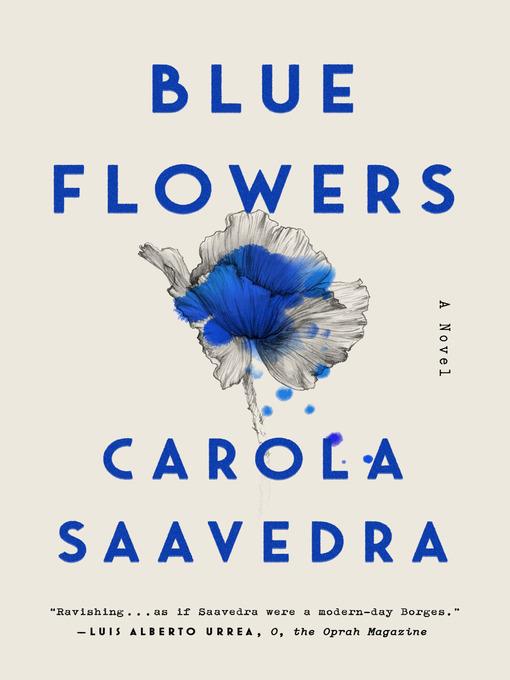
Blue Flowers
A Novel
- اطلاعات
- نقد و بررسی
- دیدگاه کاربران
نقد و بررسی

November 25, 2019
Saavedra’s captivating novel tells the stories of Marcos, a recently divorced man settling into a new apartment, and A., a mysterious woman recollecting a failed affair. Their narratives cross paths when Marcos receives a letter written by A. that is meant for his apartment’s previous tenant, who was also A.’s former lover. For nine straight days, additional envelopes from A. appear in Marcos’s mailbox, and each letter digs deeper into A.’s troubled romance. Marcos, himself feeling distant from his ex-wife, his young daughter, his work, and his social circle, reads each letter with a growing fascination. After considering hunting for A.’s intended recipient, he instead frequents shops mentioned by A., and as his obsession with her blooms, he shuts out all responsibilities and takes to searching for the anonymous writer. In chapters alternating between letters and Marcos’s reactions, Saavedra steadily unveils the darkness permeating the lives of her protagonists, and in doing so creates a literary psychological thriller that questions what is real and what is imagined. This tale of desire and yearning is impossible to put down.

November 15, 2019
A recently divorced man begins receiving letters from an anonymous woman. "My darling," begins the letter that opens Saavedra's slim novel and all the letters that follow. One morning, Marcos, a newly divorced father, discovers a light blue envelope tucked inside his mailbox. Even though it's addressed to someone else, Marcos opens the letter and discovers a love letter signed by A. The rest of the novel alternates between the daily letters from A. and Marcos' perspective. Marcos constantly feels like an outsider who is unable to understand (or be understood by) the women in his life. One morning, while watching his ex-wife and daughter leave for a visit with the girl's grandmother, he thinks: "A kind of female clan, with a matriarchal lineage, a bond that united them and made them mysterious, inaccessible--he just stood there, forever excluded from their pact." In A.'s first letter, she writes, "I remember, and I'm remembering again now." The letters remember and relive the last days and moments of the doomed relationship in detail. Steeped in eroticism and violence, A.'s letters slowly reveal the shocking events that finally destroyed her relationship. As the letters become increasingly disturbing, Marcos falls deeper under their (and her) spell. While Saavedra's sparse writing style may be polarizing, the novel's themes reward rereading--particularly the refrains that echo in both Marcos' thoughts and A.'s letters. Late in the book, Marcos--who has been struggling with insomnia--begins to remember painful moments from his marriage: "remembering only halfway, there was always something missing, memory just a nagging question." Unfortunately, the abrupt ending leaves readers with more than a few nagging questions of their own. A sparse novel about desire, abuse, and gender.
COPYRIGHT(2019) Kirkus Reviews, ALL RIGHTS RESERVED.

November 15, 2019
This unsettling whirlpool of a read by Brazilian author Saavedra draws us in along with the protagonist Marcos as he reads the letters intended, apparently, for an earlier resident of the apartment he currently occupies. Marcos' life is defined by his sense of disconnection from his ex-wife and young daughter and a perceived sense of imbalance in his relationships with other women. There's an air of dissatisfaction surrounding him which makes him particularly susceptible to the way the mysterious letter writer, in the course of just nine letters, manages to ensnare his imagination and even transform something within him. The letters partially unveil the details of a relationship where sex and violence and joy and suffering exist with very thin lines of demarcation. Saavedra's writing, particularly in the raw and vulnerable epistles, feels relentless and evocative in Hahn's translation and creates intensity inside this tale shaped by characters strongly preoccupied with words and meaning. Thematically layered and psychologically demanding, this is a book for readers willing to explore uneasy relationship dynamics.(Reprinted with permission of Booklist, copyright 2019, American Library Association.)




دیدگاه کاربران